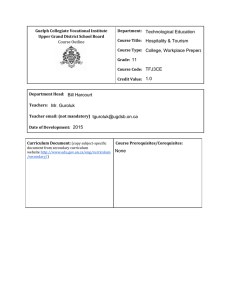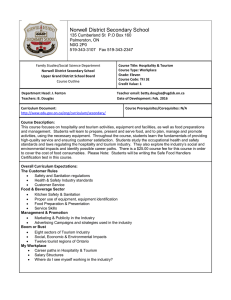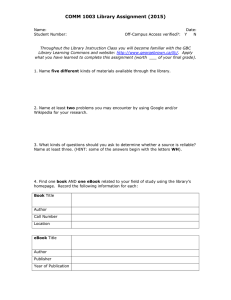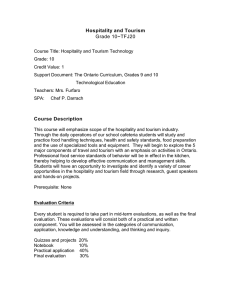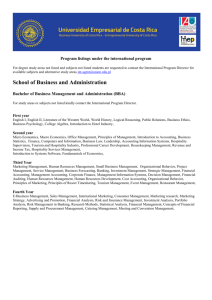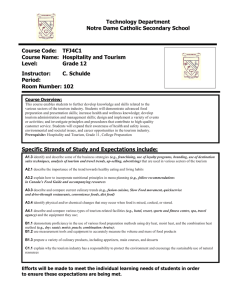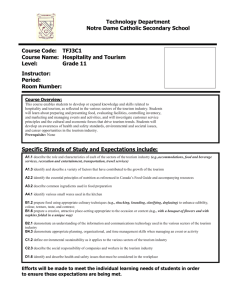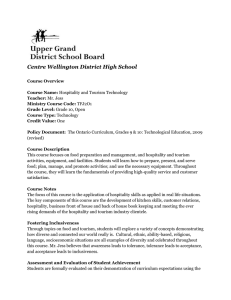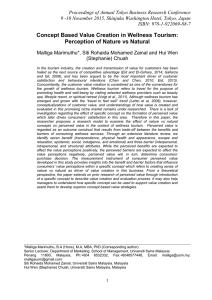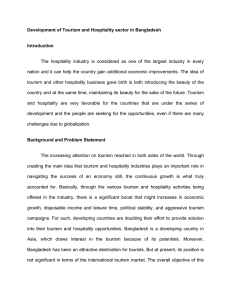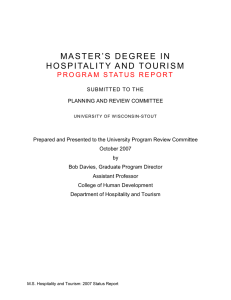Technological Education Hospitality & Tourism
advertisement
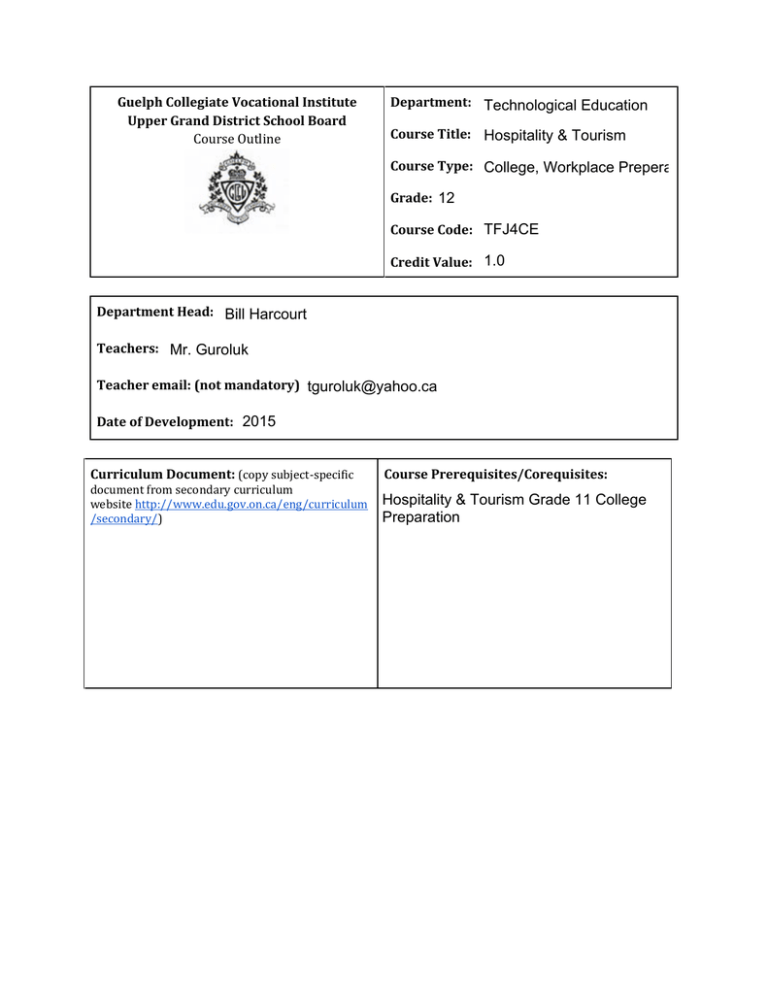
Guelph Collegiate Vocational Institute Upper Grand District School Board Course Outline Department: Technological Education Course Title: Hospitality & Tourism Course Type: College, Workplace Preperation Grade: 12 Course Code: TFJ4CE Credit Value: 1.0 Department Head: Bill Harcourt Teachers: Mr. Guroluk Teacher email: (not mandatory) tguroluk@yahoo.ca Date of Development: 2015 Curriculum Document: (copy subject-specific document from secondary curriculum website http://www.edu.gov.on.ca/eng/curriculum /secondary/) Course Prerequisites/Corequisites: Hospitality & Tourism Grade 11 College Preparation Course Description: This course enables students to further develop knowledge and skills related to the various sectors of the tourism industry. Students will demonstrate advanced food preparation and presentation skills; increase health and wellness knowledge; develop tourism administration and management skills; design and implement a variety of events or activities; and investigate principles and procedures that contribute to high-quality customer service. Students will expand their awareness of health and safety issues, environmental and societal issues, and career opportunities in the tourism industry Term Work (70% of the final mark) Unit Title Big Ideas Unit Culminating Tasks Health & Wellness Nutrition and Diet Project Culinary Knowledge Food Theory Test Meats and Poultry Butchery Practical Pastry Cakes and Pastry Practical Management Events, Costing Assignment Culminating Tasks/Exams (30% or the final mark) Course Culminating Task/Exams Description Summative Assignment & Cooking Practical (20%) Event Management and Cooking Final Exam(10%) Covering all units covered Based on the range of students’ learning needs, a selection from the strategies listed below may be utilized. Refer to list of teaching and assessment strategies. Teaching Strategies: Since most of the course is based on practical (hands-on) learning, thorough demonstrations will be given which will be followed by the student completing various tasks. Through collaborative discussion and visual instruction, curriculum will be differentiated to suit all learning styles as well as modifying assessments as per the student's individual education plan. Assessment and evaluation strategies: Term evaluation tasks will reflect the following categories of assessment: Knowledge, Thinking, Communication and Application. A variety of assessment tools will be used and may include Tests, Journals, Assignments, Activities, Essays, Participation, and Quizzes. This will account for 70% of the overall mark, and will reflect the most consistent and most recent achievement of respective curriculum expectations. Final summative research and practical assignment assignment will be worth 20% with the written final worth 10%. Textbooks/Learning Resource Materials (align with Policy 603) Materials for this course will be provided for in-class only. Photocopies will be made for the student to take home. Fees for Learning Materials/Activities Learning Materials/Activities Cost None Please refer to the GCVI Student Handbook for our school policies on: ● academic integrity ● late and missed assignments
